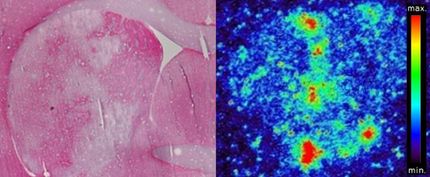Glucosamine in food supplements: risky also for patients taking coumarin anticoagulants
The European Food Safety Authority confirms BfR risk assessment
Various health claims are used to market food supplements with the ingredient glucosamine in Germany and in the European Union. Thus according to the manufacturers, such products are said to help preserve the flexibility of joints. The Federal Institute for Risk Assessment (BfR) has pointed out that these products not only carry health risks for for persons who take coumarin anticoagulants to inhibit blood clotting. The European Food Safety Authority (EFSA) has now confirmed this assessment by the BfR. "Food supplements containing glucosamine also pose a health risk for patients taking coumarin anticoagulants", says BfR President Professor Dr. Dr. Andreas Hensel. "Glucosamine can amplify the anti-blood clotting effects of drugs and thus lead to haemorrhages."
Glucosamine is an amino sugar which is used in the treatment of knee osteoarthrosis. In addition, glucosamine is used in food supplements in quantities that are too low to have a pharmacological effect. Legally, food supplements are defined as food. Already in 2007 and 2010, the BfR drew attention to the health risks associated with food supplements containing glucosamine. In its opinions, the BfR has notably identified patients who take coumarin anticoagulants to inhibit blood clotting as a risk group.
Having again conducted research on the risks posed by glucosamine as a food ingredient, the EFSA has recently confirmed the assessment by the BfR: in agreement with the BfR’s assessment, the European Food Safety Authority comes to the conclusion that there is evidence for the risk of interaction between glucosamine and coumarin anticoagulants. Glucosamine can boost the anti-blood clotting effects of these drugs, i.e. these effects can suddenly be stronger than expected. One possible consequence are haemorrhages. In the majority of reported cases, the increases detected were symptomless changes in laboratory values. In some cases, however, haemorrhages did occur in various organs, in one case with the consequence of a severe cerebral haemorrhage.
Over the last few years, the EFSA has also investigated the health claims of glucosamine in accordance with the so-called health claims regulation of the EU. In the expert opinions published so far on several submitted health claims for glucosamine as a food ingredient, the authority notes that no sufficient scientific evidence for its efficacy for the use in the healthy general population has been presented. According to both German and European regulations, food must not be marketed using misleading claims.
Most read news
Other news from the department science

Get the life science industry in your inbox
By submitting this form you agree that LUMITOS AG will send you the newsletter(s) selected above by email. Your data will not be passed on to third parties. Your data will be stored and processed in accordance with our data protection regulations. LUMITOS may contact you by email for the purpose of advertising or market and opinion surveys. You can revoke your consent at any time without giving reasons to LUMITOS AG, Ernst-Augustin-Str. 2, 12489 Berlin, Germany or by e-mail at revoke@lumitos.com with effect for the future. In addition, each email contains a link to unsubscribe from the corresponding newsletter.





















































